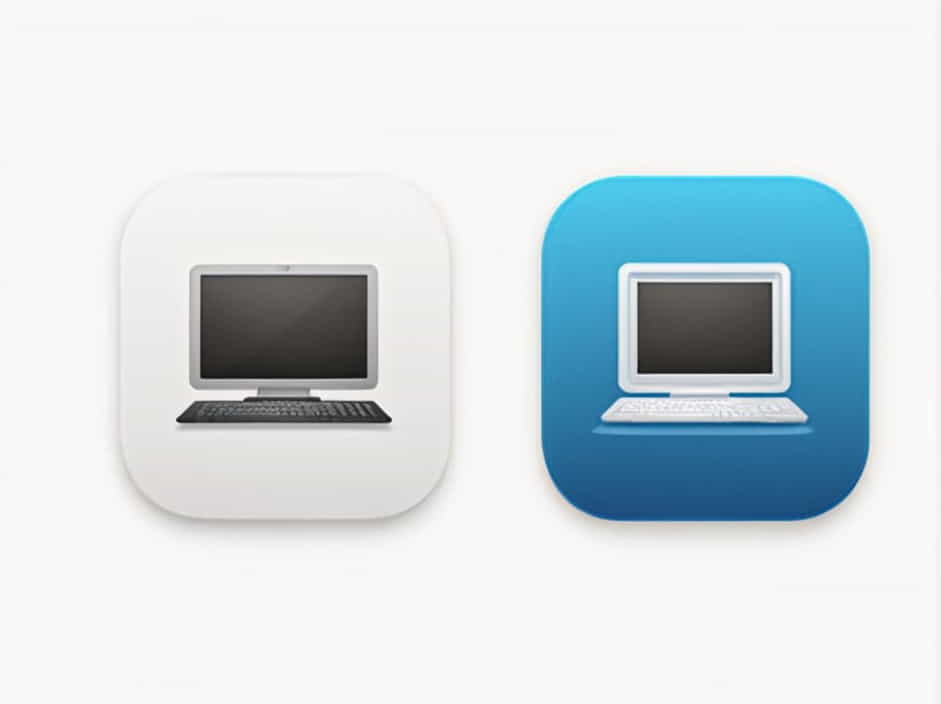The world of computing technology is vast, with various types of systems designed to meet different needs. Among these, the personal computer (PC) and the minicomputer stand out as two significant categories. While they might sound similar, they serve entirely different purposes and cater to distinct user groups.
This topic will explore the key differences between personal computers and minicomputers, their functionalities, advantages, and use cases. By the end, you’ll have a clear understanding of how these two types of computers differ.
What Is a Personal Computer?
Definition of a Personal Computer
A personal computer (PC) is a compact, general-purpose computing device designed for individual use. It is equipped with all the necessary hardware and software to perform a variety of tasks, such as word processing, internet browsing, gaming, and media editing.
Personal computers are commonly used at home, in offices, and in educational institutions, making them one of the most popular types of computers globally.
Key Features of Personal Computers
-
Single-User Design: PCs are typically intended for one user at a time.
-
Affordable and Compact: They are cost-effective and small enough to fit on a desk.
-
Versatility: PCs can handle a wide range of applications, from entertainment to productivity.
-
Customizable Hardware: Users can upgrade or modify components like RAM, storage, and graphics cards.
Examples of Personal Computers
-
Desktop PCs: Designed for stationary use, often in homes or offices.
-
Laptops: Portable PCs suitable for on-the-go use.
-
All-in-One PCs: Systems where the computer components are integrated into the monitor.
What Is a Minicomputer?
Definition of a Minicomputer
A minicomputer, also known as a mid-range computer, is a type of multi-user computer system that lies between mainframe computers and personal computers in terms of size, cost, and processing power. Minicomputers are designed to handle specific tasks, often for small to medium-sized businesses or organizations.
Unlike personal computers, minicomputers are not intended for individual use but for multiple users connected through a network.
Key Features of Minicomputers
-
Multi-User Capability: Minicomputers can support several users simultaneously.
-
Higher Processing Power: They are more powerful than PCs and can handle complex tasks.
-
Dedicated for Specific Applications: Minicomputers are often used for specialized tasks, such as managing databases or running industrial processes.
-
Larger Physical Size: While smaller than mainframes, minicomputers are larger than PCs.
Examples of Minicomputers
-
DEC PDP-8 and PDP-11: Early examples of minicomputers.
-
IBM System/36: A popular minicomputer used in business environments.
-
VAX Series: Developed by Digital Equipment Corporation.
Key Differences Between Personal Computers and Minicomputers
Now that we’ve defined personal computers and minicomputers, let’s examine the main differences between the two:
1. Purpose and Usage
-
Personal Computers: PCs are designed for individual use and cater to general-purpose tasks, such as creating documents, browsing the web, and playing games.
-
Minicomputers: Minicomputers are built for specific applications, such as managing databases, running simulations, or controlling industrial processes. They are typically used in business or organizational settings.
2. User Base
-
Personal Computers: PCs are single-user systems, meaning only one person can use the computer at a time.
-
Minicomputers: Minicomputers are multi-user systems, allowing multiple users to access and use the system simultaneously through a network.
3. Processing Power
-
Personal Computers: While PCs are powerful enough for everyday tasks, their processing power is limited compared to minicomputers.
-
Minicomputers: Minicomputers have higher processing power, enabling them to handle complex computations and support multiple users.
4. Size and Portability
-
Personal Computers: PCs are compact and portable, especially laptops, making them suitable for personal and mobile use.
-
Minicomputers: Minicomputers are larger and less portable, often housed in server rooms or dedicated spaces.
5. Cost
-
Personal Computers: PCs are relatively affordable, making them accessible to individuals and small businesses.
-
Minicomputers: Minicomputers are more expensive due to their advanced capabilities and multi-user functionality.
6. Customization
-
Personal Computers: PCs are highly customizable, allowing users to upgrade hardware like graphics cards, RAM, and storage.
-
Minicomputers: Minicomputers offer limited customization options, as they are designed for specific tasks and environments.
Advantages of Personal Computers
1. Affordability
PCs are budget-friendly and accessible to most individuals and small businesses.
2. Portability
Laptops and compact desktops make it easy to use PCs anywhere.
3. Versatility
Personal computers can handle a wide variety of tasks, from entertainment to professional work.
4. Ease of Use
PCs are user-friendly, with intuitive interfaces and a vast library of software.
Advantages of Minicomputers
1. Multi-User Support
Minicomputers can serve multiple users simultaneously, making them ideal for organizational use.
2. High Performance
With advanced processing power, minicomputers can handle complex tasks efficiently.
3. Reliability
Minicomputers are built for continuous operation, ensuring reliability for critical tasks.
4. Scalability
Organizations can scale minicomputers to meet growing computational demands.
Use Cases for Personal Computers
-
Home Use: PCs are perfect for personal tasks like internet browsing, gaming, and media consumption.
-
Education: Laptops and desktops are widely used in schools and universities for learning and research.
-
Small Businesses: PCs are commonly used for tasks like accounting, customer management, and office work.
Use Cases for Minicomputers
-
Database Management: Minicomputers are often used to manage large databases for organizations.
-
Industrial Control: Many industries use minicomputers to control machinery and production processes.
-
Scientific Research: Minicomputers are used for running simulations, analyzing data, and conducting experiments.
While personal computers and minicomputers are both important in the world of computing, they serve very different purposes. Personal computers are designed for individual use and general-purpose tasks, making them accessible and versatile. On the other hand, minicomputers are built for multi-user environments and specific applications, offering higher performance and scalability.
Understanding the differences between these two types of computers can help you choose the right system for your needs, whether for personal use, small business operations, or organizational tasks.
